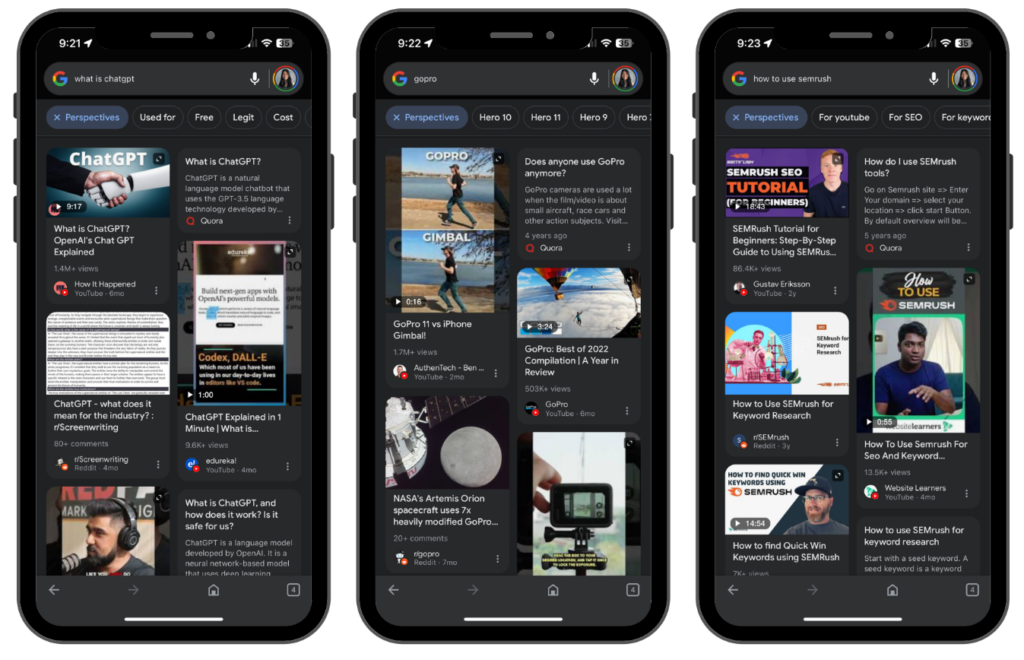The numbers say that 5% of all Google searches are health-related, which may seem low at first glance. But, suppose we know that Google, as the leading search engine in the world, processes an astonishing 8.5 billion searches per day. In that case, we come to over 4 million healthcare inquiries daily. This change of perspective is important for understanding the topic we’ll discuss here.
Being that powerful, Google serves as more than an information dispenser. Healthcare information security and privacy are a big deal online, so this engine shapes how it’s stored, displayed, and protected from potential misuse. Sophisticated algorithms and strict policies take the role of guardians, ensuring that health-related searches result in reliable, proven, and secure information. This responsibility isn’t taken lightly, especially when it comes to the delicate nature of Personal Health Information (PHI).
Google’s efforts in this area significantly impact healthcare marketing. When planning your marketing strategies, you must familiarize yourself with the digital giant’s approach to health-related content. There’s no room for avoidance—your patients are typing symptoms into Google’s search bar right now, so you need to know how Google deals with those searches and learn how to adapt to the rules.
Google’s Approach to New Features in Health Searches
When Google plans to add new features to health-related searches, it includes a highly cautious approach. The aim is to limit the exchange of misleading, inaccurate, or dangerous health information across its platforms. This goal comes from awareness of PHI vulnerability in the chaotic digital world and the impact that accurate, reliable information can have on users’ lives. That’s why every health-related search enhancement goes through a rigorous sieve of evaluation before official rollout.
For instance, when Google introduced symptom search features that allow patients to explore potential health conditions related to their symptoms, it did so in partnership with renowned institutions to ensure the information was accurate and helpful. Such features are carefully tested to maintain a high level of healthcare information security and privacy. Also, they help avoid false health alarms or encourage self-diagnosis, which can lead to what’s now known as “cyberchondria”.
The full potential of Google’s privacy tools was unlocked during the COVID-19 pandemic. Google launched specific information panels that helped users get reliable information from key health authorities, like the World Health Organization (WHO) and local health departments. Critical health messages were spread efficiently by prioritizing people’s safety and privacy in times of the biggest global health crises in past decades.
A careful balance between the benefits of innovation and the potential misinformation and PHI risks is the core of Google’s aim to align health search features with the public’s best interests. But the battle goes on—there are still many ways to endanger both patients’ data and their health-related decisions online.
Limiting Harmful Health Content: The Goal
The Internet often looks like the Wild West, where outlaws swiftly take control through noise and rampage, using misinformation like a pair of guns. Recognizing this, Google takes concrete steps to limit this dangerous trend. This mission is critical for both Google and healthcare—it saves the reputation of the biggest search engine while preserving public health by allowing users to get content that heals rather than hurts.
Fighting misinformation is one of the biggest challenges in sharing health-related information. Scary health myths, false claims, and pseudoscientific theories spread like wildfire online. Google has the challenge of keeping PHI safe, and quick reactions are the priority. For example, during the COVID-19 pandemic, Google quickly updated its policies to address misinformation, ensuring that search results show authoritative sources.
Combining algorithmic precision and expert opinions underlines Google’s proactive role in mitigating the spread of harmful health content. Still, misinformation always finds new ways to contaminate the vast digital space. That’s why Google and healthcare entities must constantly work together to make the Internet safe for health-related searches.
The Influence on Healthcare Marketing Strategies
Google’s strict rules for healthcare information security and privacy significantly influence how health-related content is shared online. It’s like a tightrope walk for healthcare marketers – on one side, your content needs to grab your audience’s attention. On the other, you must tick all of Google’s accuracy and reliability boxes. So, it’s not enough to just send your message out in the digital world. It needs to be done responsibly, showing your content relies on credible sources to avoid sensationalism and misinformation, harmful to patients’ well-being.
Whatever healthcare marketing strategy you use, you need to align it with Google’s E-E-A-T principle – Experience, Expertise, Authoritativeness, and Trustworthiness. It’s Google’s way of ensuring content isn’t just fluff or damaging, which affects your search rankings. Elements like expert authorship, author bios, and a user-friendly design may be an extra step to take. However, it makes your healthcare marketing efforts worthwhile while contributing to your search engine optimization (SEO).
Keeping up with Google’s algorithm updates is crucial for healthcare marketing. Remember the “Medic Update” of 2018? It was quite a big change that favored authoritative and trustworthy content, changing how healthcare websites appear in search results. So, by focusing on the integrity and quality of your content, you can improve visibility on Google and positively contribute to public health while staying well-ranked and protecting PHI.
Still, Google always goes a little further. The new revolutionary features have already made online debuts, aiming to change internet searches forever.
From Perspectives to Forum: Google’s New Game-changing Search Filter
Google’s new search filter, Perspectives, which is now known as the Forums filter, was launched on mobile devices last June. Let’s see how this new feature affects the way we search online.
This filter works like an invitation for experts to a roundtable right after your search. It groups their viewpoints on the topic you’re interested in, providing a more prominent and clearer picture from different angles. It’s about pulling in professional insights and analyses on everything from climate change to the latest trends in technology to get more comprehensive answers. This should help fight unreliable sources, solely AI-generated content, and misinformation.
 Screenshot from Google, June 2023
Screenshot from Google, June 2023
But here’s the twist – when it came to health topics, Google hit the brake. So, if you use this filter to check your symptoms, you’ll end up empty-handed. As we have seen, Google is aware that health information isn’t just another opinion piece but something that can really affect lives.
This reflects Google’s YMYL (Your Money or Your Life) policy that imposes stricter quality standards for content that could significantly impact users’ health, financial stability, or safety to ensure reliability and trustworthiness. In such a sensitive domain where both Google and healthcare try to fulfill their missions, this stance looks logical – it’s important to prioritize content based on the highest medical standards and consensus.
But what’s there for healthcare marketing, then? The answer is that quality matters. This new filter shows that reliable and trustworthy content will be the future of internet searches. While the current status of this feature might have evolved, it sets the principle for healthcare marketers—only well-researched, expert-backed information should be considered important to show in the top results on Google.
The Power of AI: Google’s Search Generative Experience (SGE)
It looks like Google’s work on improving the search experience never stops. We’ve learned about a brand new search filter, but another approach precedes it – Search Generative Experience (SGE).
SGE is a high-tech feature that uses AI to understand user intentions better than ever before. It can include a blend of summaries, comparisons, and deep analysis of topics, providing a broader, more interactive search experience. It’s like chatting with a friend who gets what you’re asking and gives you ready-to-go answers that feel tailored just for you.
 Screenshot from Google
Screenshot from Google
It’s easy to imagine how the personalized nature of SGE can contribute to healthcare information security and privacy and overall patient satisfaction. But you’ll need to wait for that for a little while. According to the latest updates, Google has been testing and fine-tuning SGE, making a cautious yet progressive move to its full integration into the search system. The availability of SGE to users, particularly in health-related searches, is under rigorous testing to ensure accuracy, relevance, PHI protection, and respect for privacy rules, and it’s possible that it won’t appear for health-related searches at all even after it’s fully rolled out.
There’s no doubt that SGE will change how healthcare marketing strategies are made. The focus on AI-generated, clear, and detailed responses means you need to make a big shift—besides answering, you need to understand how people naturally ask questions and what they’re really looking for.
Staying updated is key as SGE evolves. You need to be ready to reshape your marketing tactics so your content keeps pace with the new AI-driven search world and embraces SGE when the time comes.
Keeping Up: Adapting to Google’s Health-Related Content Guidelines
Following Google’s rules is crucial to ensuring your healthcare marketing strategy reaches its maximum potential. It’s all about crafting the right content for your audience while keeping healthcare information security and privacy a priority.
To apply these guidelines successfully, you must take a couple of steps. Your content should be well-researched and based on references drawn from the latest medical research, health authorities’ guidelines, and medical professionals’ insights. Every piece of information, from treatment options to health tips, should be double-checked for accuracy and clearly presented to avoid misinterpretation. Wherever possible, involve healthcare professionals in content creation and review process. Patients love to see the doc’s signature under the piece they’re reading.
Evidence-based content is also the core of Google’s search policies. Besides, it also builds trust with your patients. Stay updated with the latest medical research and guidelines to ensure information is current and backed by science. Openly discuss the limitations of it, if any. That saves both you and your patients from misusing the provided information.
Google’s algorithms are continually evolving. Its updates can significantly impact your visibility. Regularly check Google’s announcements to stay ahead of changes and be prepared to tweak your marketing strategies in response to new algorithm updates, ensuring continued compliance with Google’s guidelines and patient expectations.
Google and Healthcare: Leveraging The Powerful Duo
Google dictates the nature of internet searches. Its policies and features play an important role in healthcare information access, which is important for keeping patient data safe. But, to be honest, chasing Google’s frequent updates can be complicated for you as a healthcare professional focused on providing the best care for your patients.
However, innovation doesn’t wait, so it’s better to jump on that train on time, and SocialClimb can help you enjoy the ride. Our comprehensive marketing platform helps you stay ahead with the latest digital updates, making sure your marketing investments yield the highest ROI. At the same time, it helps you align your strategy with the ever-changing privacy policies and maintain HIPAA compliance, minimizing the risk of PHI breaches and increasing your brand’s trustworthiness.
You can use this platform to protect healthcare information security and privacy on social media and other online channels. This will transform your marketing efforts from extra demand to seamless activity with a reputable and authoritative signature. That’s what Google likes and rewards.











